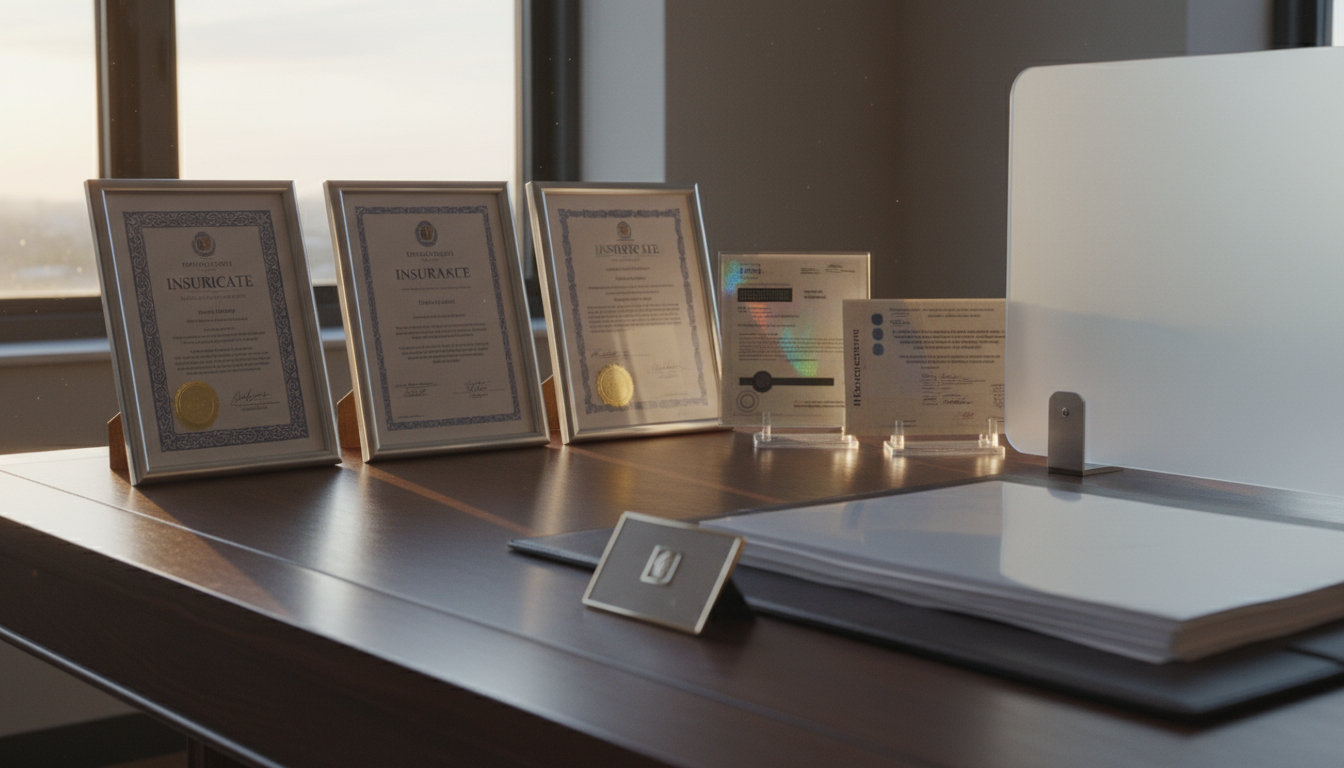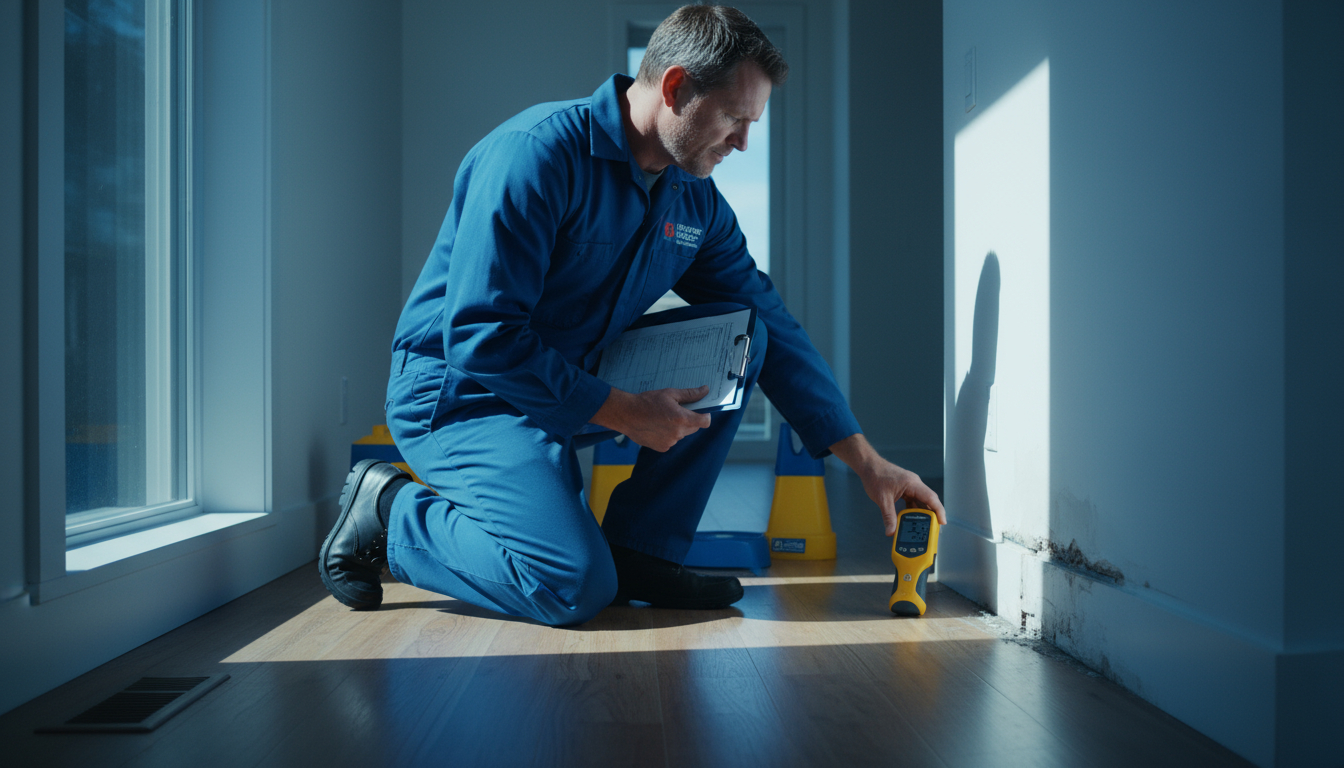Why Your Choice Matters
When you choose restoration company for your home, this decision directly impacts your insurance claim, your home’s safety, and how quickly you return to normal life. A qualified company will document everything properly, work seamlessly with your insurance, and restore your property to pre-loss condition. The wrong choice can lead to incomplete work, insurance disputes, or even additional damage.
Finding restoration services that meet professional standards isn’t just about price—it’s about expertise, response time, equipment, and accountability. The restoration company selection process requires careful evaluation of credentials, experience, and communication.
🔍 Essential Qualifications to Verify
Insurance and Licensing
Before any work begins, verify these credentials:
- General Liability Insurance – Protects your property during restoration
- Workers’ Compensation – Covers injuries on your property
- State Contractor License – Confirms legal operating status
- Bonding – Provides financial protection if work isn’t completed
✅ Ask to see certificates, not just verbal confirmation. Contact the insurance company directly to verify coverage is current and adequate for your project size.

Professional Certifications
Restoration work requires specialized training. When you choose restoration company for your project, look for companies with technicians who have completed professional certification programs in water damage restoration, fire and smoke restoration, mold remediation, and applied structural drying.
These certifications ensure technicians understand industry standards, proper techniques, and safety protocols. Companies that invest in ongoing training demonstrate commitment to quality work.
Industry Affiliations
Membership in professional restoration organizations indicates a company stays current with best practices, has access to continuing education, and adheres to ethical standards. These affiliations aren’t just decorative—they require maintaining standards and continuing education.
🚨 Red Flags to Watch For
Walk away if you encounter:
| Red Flag | Why It Matters | What to Do |
|---|---|---|
| No written estimate | Leaves room for surprise charges | Require detailed written quote |
| Cash-only payment | Suggests unlicensed operation | Use companies that accept checks/cards |
| Pressure to sign immediately | Prevents comparison shopping | Take time to compare 2-3 companies |
| Door-to-door solicitation | Often unqualified storm chasers | Research companies yourself |
| No local references | May disappear after deposit | Check local reputation and reviews |
| Offers to pay deductible | Insurance fraud—illegal practice | Report to insurance and authorities |
💡 Questions to Ask During Your Research
About Their Experience
- “How long have you been in business locally?” – Look for at least 3-5 years of established presence. This indicates stability and local reputation. When you choose restoration company, longevity matters because it shows they’ve survived economic changes and built lasting community relationships.
- “How many projects like mine have you completed?” – Specific experience with your type of damage matters. Water damage requires different expertise than fire restoration.
- “Can you provide local references from the past 6 months?” – Recent references reveal current work quality and customer service standards.

About Their Process
- “What’s your typical response time for emergencies?” – True restoration companies offer 24/7 emergency response. Hours matter when water is spreading or smoke odor is setting in.
- “Do you handle the entire project or subcontract work?” – Subcontracting isn’t necessarily bad, but you need to know who’s responsible and verify their credentials too.
- “How do you communicate progress during the project?” – Look for companies with project managers, regular updates, and photo documentation systems.
About Insurance and Billing
- “Do you work directly with insurance companies?” – Experienced restoration companies handle insurance documentation, communicate with adjusters, and understand the claims process.
- “What’s your payment structure?” – Professional companies typically bill insurance directly or require small deposits. Large upfront payments are concerning.
- “Do you provide detailed written estimates?” – Itemized estimates prevent surprise charges and help insurance adjusters understand the scope.
🔧 Equipment and Technology
Professional restoration requires specialized equipment. When you choose restoration company, during initial assessment you should see or hear about:
- Moisture Detection Equipment – Thermal cameras and moisture meters locate hidden water
- Industrial Dehumidifiers and Air Movers – Speed drying and prevent mold growth
- Air Scrubbers and HEPA Filtration – Remove contaminants from air during restoration
- Truck-Mounted Extraction Units – Remove water efficiently from carpets and padding
- Antimicrobial Treatments – Prevent mold and bacterial growth
Companies that own their equipment (rather than renting) typically have more experience and can respond faster to emergencies. Proper equipment is essential for services like residential water cleanup and extraction.

📋 The Comparison Process
Step 1: Create Your Shortlist
Gather 3-5 potential companies through insurance recommendations, online research, and local referrals. Check online reviews on multiple platforms—look for patterns in feedback rather than individual extreme reviews. This shortlist helps you choose restoration company with confidence by comparing qualified options side by side.
Step 2: Initial Contact Assessment
Pay attention to your first interaction. Professional companies answer phones promptly (or return calls quickly), ask detailed questions about your situation, and schedule assessments within 24-48 hours for non-emergency situations. How they handle this first contact reveals much about how they’ll treat you throughout the restoration process when you choose restoration company.
⏰ For emergencies, they should offer same-day or next-morning assessment.
Step 3: In-Person Evaluation
During the on-site visit, observe:
- Do they arrive on time in branded vehicles?
- Are technicians professional, uniformed, and equipped?
- Do they use moisture meters and document findings?
- Do they explain the process clearly?
- Do they take time to answer your questions?
- Do they provide written documentation of assessment?
Step 4: Compare Written Estimates
| What to Compare | What to Look For |
|---|---|
| Scope of Work | Detailed breakdown of all services included |
| Timeline | Realistic start and completion dates |
| Materials Specified | Brand names and quality levels noted |
| Exclusions | What’s NOT included clearly stated |
| Warranty Information | Coverage period and what’s guaranteed |
| Payment Terms | Schedule and accepted methods |
🎯 The lowest bid isn’t always the best choice. Compare value, not just numbers. A thorough restoration that prevents future problems is worth more than cutting corners.
✅ Making Your Final Decision
After comparing estimates and checking references, trust your instincts. Choose restoration company that:
- Responded quickly and professionally to your initial contact
- Provided transparent, detailed estimates
- Clearly explained the entire process and timeline
- Had verifiable credentials and positive references
- Made you feel comfortable and confident
- Demonstrated expertise specific to your damage type
- Showed proper equipment and trained technicians
Your comfort level matters. You’re inviting this company into your home during a stressful time. Choose a team that communicates clearly, respects your property, and puts you at ease.
⚠️ Special Considerations for Emergency Situations
When facing active water intrusion, fire aftermath, or sewage backup, you need immediate help. Even in emergencies, you can make smart choices when you choose restoration company. Professional 24-hour emergency services can stabilize your property while you research full restoration options.
✓ Do:
- Call your insurance company first—they often have preferred vendors
- Ask emergency responders if they can stabilize (not restore) while you research
- Verify basic credentials before authorizing emergency work
- Get a written scope for emergency services separate from full restoration
✗ Don’t:
- Sign long-term contracts under pressure
- Authorize extensive work without insurance adjuster involvement
- Pay large sums upfront, even in emergencies
- Skip verification of insurance and licensing
📞 Working With Your Insurance Company
The best restoration companies understand insurance processes and can help you navigate claims. They should:
- Document damage thoroughly with photos and moisture readings
- Provide detailed estimates in insurance-standard formats
- Communicate directly with adjusters when authorized
- Understand what’s typically covered vs. excluded
- Help you understand your policy and claim status
However, remember: the restoration company works for you, not your insurance company. They should advocate for proper restoration, not cut corners to reduce insurance costs.
🛡️ Protecting Yourself Throughout the Process
Before Work Begins
Once you choose restoration company, protect yourself by ensuring:
- Get everything in writing—scope, timeline, costs, warranties
- Verify insurance coverage is current
- Understand the payment schedule
- Know who your main contact person will be
- Clarify communication expectations
During Restoration
- Document progress with your own photos
- Keep all receipts and communications
- Address concerns immediately—don’t wait until completion
- Verify work matches the written scope
- Ask questions when you don’t understand something
Before Final Payment
- Complete a thorough walk-through inspection
- Test all repaired systems and fixtures
- Verify warranty documentation
- Ensure all cleanup is complete
- Get written confirmation of work completion
Frequently Asked Questions
Should I choose the restoration company my insurance recommends?
Insurance recommendations can be helpful starting points, but you’re not required to use them. Your insurance company cannot force you to use a specific contractor. Many insurance-preferred vendors are excellent, but always verify credentials and get multiple estimates. Choose restoration company based on qualifications, not just insurance relationships. The company works for you, not your insurer.
How quickly do I need to choose a restoration company after damage occurs?
For water damage, time is critical—mold can begin growing within 24-48 hours. For fire damage, securing the property quickly prevents additional damage and theft. While speed matters, you can still verify basic credentials even in emergencies. Get immediate stabilization services, then take a day or two to properly choose restoration company for full restoration work. Most insurance policies require prompt action but give you reasonable time for finding restoration services. If you suspect mold growth, professional mold removal and remediation services should be contacted quickly.
What’s the difference between a general contractor and a restoration company?
Restoration companies specialize in damage-related work—water extraction, structural drying, smoke odor removal, mold remediation. They understand insurance claims, emergency response, and contamination control. General contractors focus on construction and remodeling but may lack specialized restoration equipment and insurance expertise. For disaster recovery, hiring contractors with specific restoration training ensures proper mitigation and documentation. Some companies offer both restoration and reconstruction services.
Can I do some of the restoration work myself to save money?
Minor cleanup might be appropriate, but most restoration requires specialized equipment and expertise. DIY restoration often leads to hidden moisture, mold growth, and insurance claim complications. Professional documentation is crucial for insurance reimbursement. Improper restoration can also void warranties and create health hazards. Focus your energy on documenting damage and communicating with insurance—let professionals handle the technical restoration work.
What warranties should a restoration company provide?
Professional restoration companies typically warranty their workmanship for at least one year. This covers proper drying, mold prevention, and structural repairs. Warranties should be written, specific about coverage, and explain the claim process. Be wary of companies offering no warranty or only verbal guarantees. Good companies stand behind their work and have insurance to cover warranty claims if needed.
Your Next Steps
Choosing the right restoration company sets the foundation for successful property recovery. Take time to research, verify credentials, and compare options—even in urgent situations. The extra effort during restoration company selection prevents problems throughout restoration.

When disaster strikes, you need restoration experts who respond quickly, work thoroughly, and communicate clearly. Don’t wait for an emergency to research your options. Knowing what to look for helps you make confident decisions when time is limited and stakes are high. Learning how to choose restoration company before you need one saves valuable time during actual emergencies.
Remember: the restoration company you choose becomes your partner in recovery. Select wisely, and you’ll have an advocate who guides you through the insurance process, restores your property properly, and gives you peace of mind during a difficult time.
Need help finding restoration services you can trust? Professional restoration companies with proven track records, proper certifications, and emergency response capabilities make all the difference in your recovery timeline and final results. Contact us to learn more about professional restoration services in your area.

